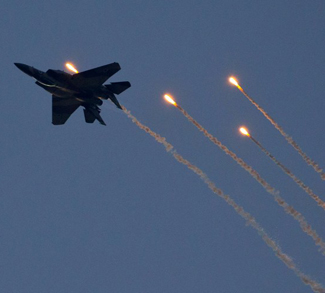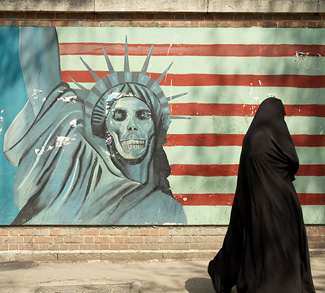Summary
Syria officially ended 60 years of non-recognition this past week when it recognized Lebanon as a sovereign state and announced plans to exchange embassies with its neighbor. The diplomatic move comes at the end of decades of often acrimonious, and violent, relations. Still, the Syrians influence in Lebanon continues to grow.
Analysis
This past Tuesday, Syria officially recognized Lebanon for the first time, as the two countries announced the establishment of diplomatic ties and plans to exchange embassies by the end of the year. The formal recognition ends over half-a-century of antagonistic relations during which Syria refused to accept Lebanese independence, claiming that the state, a former part of the French Mandate of Syria, was an integral part of Syria proper.
Syrian domination of its smaller neighbor culminated in military occupation of Lebanon from 1976-2005. In 1976, at the request of the Lebanese government to assist it in its year old civil war, the Arab League mandated a peacekeeping force composed primarily of Syrian soldiers. However, despite the fact that the Lebanese government refused to seek a renewal of the mandate in 1982, the Syrian forces remained ensconced in their positions in Lebanon. In fact, Syrian armed forces remained in occupation of Lebanon even after the end of the Lebanese civil war in 1991.
The Lebanese civil war ended with Syria ascendant. In exchange for supporting the US war against Iraq after the latter had invaded Kuwait, the Americans pressured the Israelis to refrain from attacking Syrian aircraft in the final battle for Beirut. With the road to the capital literally cleared, Syrian forces and allies (primarily the Christian Lebanese Army militia) triumphantly toppled the Iraqi-backed, anti-Syrian Lebanese Armed Forces, controlled by the Christian Prime Minister General Aoun. Significantly, the pro-Syrian end of the civil war had been decided a year earlier by the Arab League, through a committee chaired by none other than the Kuwaitis.
Syria maintained its military presence-cum-occupation of Lebanon for the next fifteen years, even after the armed forces of all other countries had retreated, including Israel in 2000. After Israel’s withdrawal, Iranian-backed Hezbollah continued to engage with Israeli armed forces, primarily due to the controversy over the Shebaa Farms, a disputed region occupied by Israel as part of its occupation of the Golan Heights. Although Israel claims the Shebaa Farms are part of Syria, the latter has renounced claims to the land and, instead, supported Lebanon’s claims on the area, using Hezbollah to further its objective of pushing Israel out of the Golan Heights.
Syria’s occupation of Lebanon ended after anti-Syrian demonstrations, prompted by the assassination of the pro-Western former Prime Minister Rafik Hariri and supported by the U.S. and its allies, forced the Syrian army out in 2005, in what became known as the Cedar Revolution. Despite the Syrian army’s departure from Lebanon, Israel failed to defeat Hezbollah in their summer 2006 war, and the pro-American government in Beirut failed to disarm the militant group. In fact, after Hezbollah triumphed in a mini-civil war this past spring, the Arab states, led by Saudi Arabia, engineered a ceasefire and power-sharing arrangement that provides Hezbollah and pro-Syrian factions veto power in the Lebanese parliament.
Further, Syria and Lebanon are co-participants in the French sponsored Union for the Mediterranean, which was formed this past summer.
Thus, the official recognition and exchange of embassies comes amid a decrease in Syria’s military presence in Lebanon counter-balanced by a growing political influence.
Manjit Singh is a contributor to Geopoliticalmonitor.com



